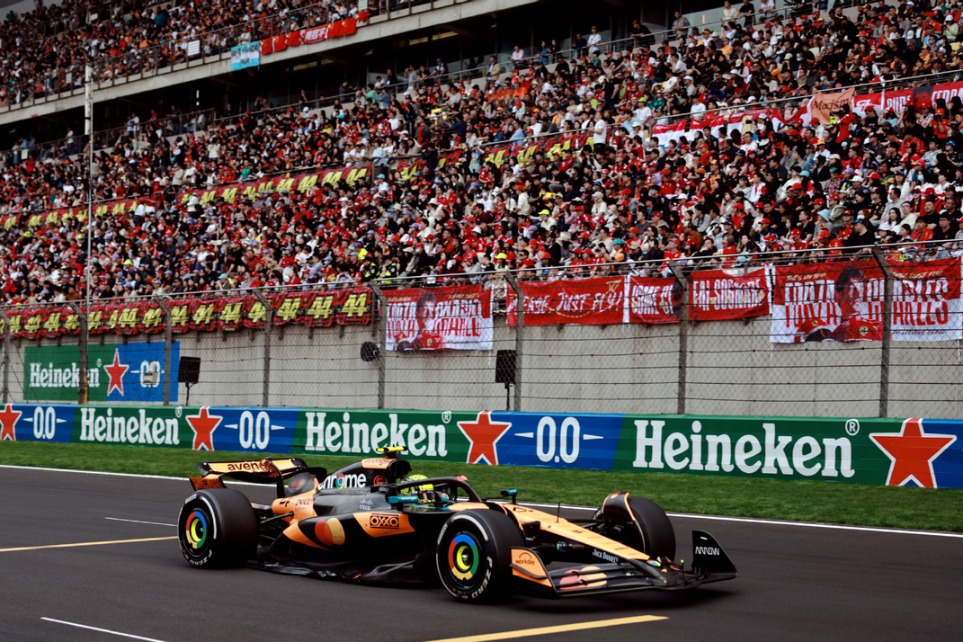A driving force
Chinese GP fuels multi-sector growth in Shanghai, while elevating the city's profile as a global sports hub


Female power
Shi Wei, China's first driver to race in the all-female F1 Academy also made history last weekend. Also known as tie dou, wildcard Shi finished 14th in the second round of the weekend's F1 Academy race.
With Shanghai staging the F1 Academy's 2025 season opener, and it being the tournament's Asian debut, Domenicali said her involvement creates "an incredible momentum" to inspire young women.
According to Shanghai Observer, the proportion of female fans among domestic viewers reached 50 percent, and female spectators at this year's F1 Chinese Grand Prix accounted for 33.8 percent.
Chloe Chambers, from Campos Racing, who claimed third in the F1 Academy's second race on Sunday, appreciated the opportunity to host the opening race in Shanghai.
"The atmosphere has been really nice," Chambers said, "I think it's really cool to see so much support for F1 Academy, and I hope to see it continue to grow."
Banks, the fan from Australia, also appreciated the opportunity to watch the F1 Academy. "You're lucky that you've got that here; we don't get that in Australia."
She believes the F1 Academy is a positive move, as women need a competitive platform.
However, what's more important is that the races enable audiences to see the potential of female drivers. "I was prejudiced; I didn't think that women could compete in Formula One," Furness said. "But, I think I'm wrong. It's nice to give the women a chance to compete."
Tourism boost
Shanghai is quickly establishing itself as a sports city.
According to the 2024 Shanghai Sports Event Impact Assessment Report released by the Shanghai Sports Bureau, the East China metropolis hosted 178 international and domestic sports events in 2024, generating a direct economic impact of 113.8 billion yuan ($15.7 billion) and a total economic impact of 309.9 billion yuan.
The report also highlights the Chinese Grand Prix's significant contribution to its sports economy, with a direct economic impact of 14 billion yuan. In terms of indirect economic impact, the output effect amounts to 39.3 billion yuan, and the overall impact on the six major industries of food, accommodation, transportation, tourism, shopping and entertainment reaching 15.9 billion yuan.
"This year, we anticipate an even greater impact," stated Huang Ming, general manager of Shanghai Juss Event Management Co Ltd.
It appears that the "F1 effect" has already radiated beyond the city limits.
For example, the Furness couple not only visited attractions in Shanghai, such as the Jade Buddha Temple, but also rushed to see a 2,000-year-old water town in the Yangtze River Delta region.
Before the race, the Banks couple, who were visiting China for the first time, also visited Zhangjiajie, Hunan province, because they wanted to see where Avatar was filmed.
They agree that having an event like F1 helps boost the tourism industry, using Australia as an example. Due to the distance, many Australians don't always travel to China, noting: "This is an anchor for them to start their trips."
Looking forward, the Chinese Grand Prix secured a five-year contract extension in December, guaranteeing its presence on the racing calendar until 2030.
As Domenicali highlighted, expressing confidence in China's market: "This event has the potential to be two to three times bigger than what it is now."
Li Junfeng contributed to this story.





























